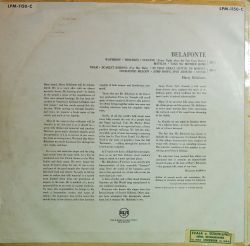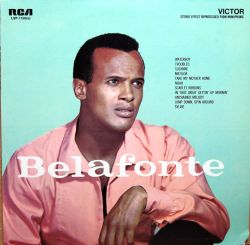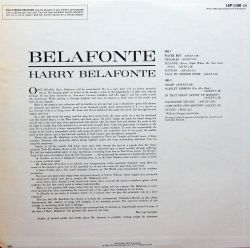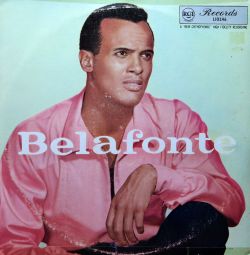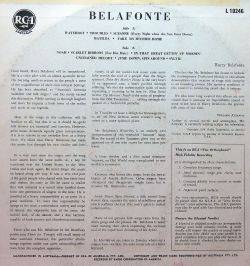|
|||||||||
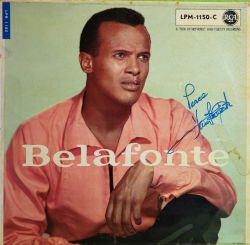 |
LP mono: RCA LPM1150C |
||||||||
|
Released in 1955 |
|||||||||
| A1 | Waterboy # | 3:42 |
|
||||||
| A2 | Troubles # | 3:38 |
|
||||||
| A3 | Suzanne # | 3:19 |
|
||||||
| A4 | Matilda # | 3:11 |
|
||||||
| A5 | Take My Mother Home # | 6:00 |
|
||||||
| B1 | Noah # | 4:53 |
|
||||||
| B2 | Scarlet Ribbons # | 3:13 |
|
||||||
| B3 | In That Great Gettin' Up Mornin' # | 3:15 |
|
||||||
| B4 | Unchained Melody # | 3:18 |
|
||||||
| B5 | Jump Down Spin Around # | 1:54 |
|
||||||
| B6 | Sylvie # | 5:21 |
|
||||||
| Belafonte's second album includes songs featured in the Broadway
production of Three for Tonight, which starred
Belafonte along with Gower and Marge Champion. The collection again
featured a variety of material, which would become a hallmark with his
albums up until the mid-1960s. But now, for the first time, the power of
Belafonte's interpretive skills become apparent, especially with songs
culled from field recordings of chain gangs and southern prisons. "Jump
Down, Spin Around" and "Sylvie" were both popularized by
Leadbelly. The hammer song "Water Boy" and the spirituals "Take My
Mother Home" and "Noah" are among the most powerful performances in
Belafonte's career. Also included is Belafonte's second recording of one of
his most requested songs, the calypso "Matilda." This version was far
superior to his first effort, released only on a single in 1953. This album
was swept along with the success of Belafonte's next release, the
million-selling
Calypso, and was #1 on Billboard's album charts for six weeks, remaining
on the charts for over a year. ~ Cary Ginell, All Music Guide |
|||||||||
|
|||||||||
